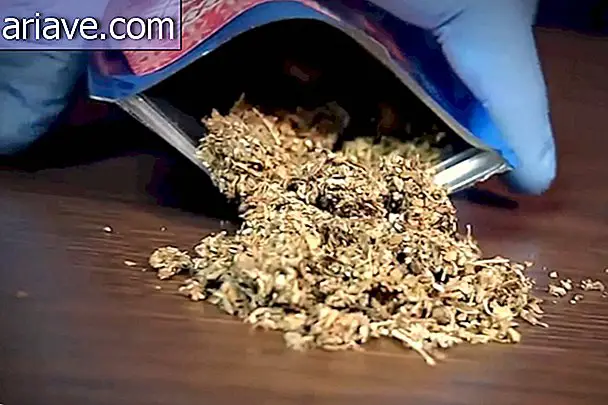We have listed 3 things that are not as 'green' as they say
The environment is increasingly a concern of the world population. People, rulers, and some institutions are on the alert to try to mitigate the damage to our planet, while others, on the other hand, don't even seem to care about the possible problems caused to the world.
Then you read that and think, "Oh, that's certainly not me, because I'm doing my part ...". But is it really? What have you been doing to improve life on the planet and the quality of the surrounding environment?
Well, here at Mega Curious, we have already presented some stories that show how much man or some polluting agents can be harmful to our planet's ecosystems. You can check out the list with 8 reasons why animals are disappointed in the human race or the list of 10 fish that are destroying the earth because of us, as examples of bad things man is capable of causing the world.
Returning to the question at the beginning of the text, what do you do to preserve or improve the environment? Is it right? Is it enough? A list presented by the Cracked site brings three situations that are not as ecologically correct as you think and that can change your position regarding nature conservation.
1. The word biodegradable means nothing
Or rather, it means everything. As well? Well, everything you own, what you buy, is as biodegradable as a banana peel, or as yourself. This is because everything that is in the environment will eventually decompose. The clear difference is that some products disintegrate more easily and in less time according to the conditions to which they are subjected. Therefore, there is no big difference between a biodegradable label product and a non-biodegradable product, as both will have the same fate.

Okay, using products that have a faster breakdown is certainly better than one that can take centuries, but the problem is that there are no regulations for this labeling. That is, in order to help the environment, you can choose an item that has a "biodegradable" packaging, but there is no guarantee of how much it represents, since it can take one, two, five, 20, 50, 100 years or more to decompose. Plastic, for example, is a product that will always take many years to crumble under normal temperature conditions, regardless of whether it has a biodegradable label or not.
This shows that to do your part to improve the environment, it is not enough to buy “biodegradable” or “environmentally friendly” packaging and cross your arms satisfied with your “help” to the planet. The awareness goes from each one, and it is necessary to inform and work with more dedication, separating the waste correctly, recycling and giving the right destination to the products used, among several other behaviors that can be adopted.
2. Planting trees is not always good for the environment.
Trees will always protect us, a lot. So much so that the more protection we get, the more protection we have, but all that is too much is not beneficial. And with the trees is no different.
Well, the good role of plants and trees is undeniable because they absorb solar energy, not letting it be reflected, which would increase the temperature of the earth. In addition, they return vapor to the atmosphere from the water they consume, creating clouds that block sunlight. In short, trees protect us from everything the sun can offer from bad.

However, this protective role against this star works wonderfully in places where sunlight and solar heat shine in properly or most. That is, the closer to Earth's poles, two of the three functions of trees that serve to protect us end up becoming precarious. In places with less sun, they absorb carbon dioxide, but do not send any oxygen or vapor into the atmosphere, so the role of maintaining the planet's temperature reverses and they heat it up.
By failing to release oxygen to replace carbon dioxide, they release other chemicals to protect themselves from pests, heat, and other environmental conditions. These naturally emitted chemicals, added to the harmful elements released by cars and factories, can result in very unpleasant substances.

Interestingly, according to the Cracked website, trees are responsible for less oxygen than previously thought, so that if they were all extinct from Earth we could still breathe quietly. Of course they have very important functions, so this is not an incentive to deforestation, but what is proposed with this view is that going out planting and replanting trees around the world to make it greener will not necessarily cause effective changes in the climate.
3. Planet Time has no use
It is a symbolic act. Only that. Turning off all lights for 1 hour to combat climate change, according to Cracked, is like “cutting China's carbon dioxide emissions by 4 minutes, ” that means nothing to the big climate problem. This issue involves another important point that needs to be verified.

What do people do when they turn off all the lights? Are you quiet for 1 hour in the dark? Probably not, correct? Yeah, they'll light candles to perform their normal activities, which range from reading a book to a romantic dinner. And often, several lighted candles are needed, which is nowhere more beneficial to the planet than turning out the lights.
Just to give you an idea, a standard paraffin candle emits about 10 grams of carbon dioxide after one hour, while at the same time of activity, a standard fluorescent lamp releases about 5 grams. Turning off the lights for 1 hour is easy, but what if this period is used to discuss behavioral changes and investments in green technologies? The easy part, if done together with the hard part, will surely be more productive.

Again, then, we come across an example of insufficient attitude to improve the environmental preservation of the planet. If you think turning off your lights for 1 hour each year is “doing your part, ” here is a tip to rethink this and find better ways to do it.
So what are your main attitudes to preserve the environment? Tell us about the Mega Curious Forum











